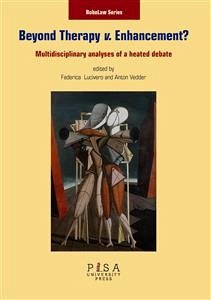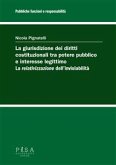The debate on the ethical, social and legal impact of technologies enhancing human capabilities has been largely fed by philosophy and ethics scholars. These contributions offer arguments in favour or against the use and distribution of more or less specific types of enhancing technologies. Since authors’ positions drastically vary from ‘trans-‘ or ‘post-‘ humanist claims about the desirability of these technologies to ‘conservative’ views opposed to those technologies and showing their dangers and perils, this debate is often heated and confused. The distinction between therapy and enhancement itself is exemplary in this respect. The distinction is often not meant to merely serve the theoretical purpose of creating definitional clarity; it is also often implicitly used to depict one class of actions as morally unproblematic (therapy) and another class of actions as morally problematic (enhancement). The debate on human enhancement is not only a matter of philosophical concern but it is also a hot topic in public and political discussions, with an increasing demand of European institutions for grounded recommendation concerning policies and governance of technologies for human enhancement. Therefore, on the one hand we have a heated debate that is a core interest of political institutions and, on the other hand, we have little reflection on the terms and concepts of this debate. This volume aims to fill this gap by providing analysis and clarification of the main trends, concepts, and assumptions of the debate. The essays in this volume examine the debate from a meta-level, analysing the discussion and mapping its arguments and conclusions, shedding new light on the traditional distinctions and assumptions in the debate on human enhancement from different disciplinary perspectives: law, ethics, philosophy of technology, science and technology studies, social sciences, engineering science, technology assessment and general regulation studies.This volume is one of the results of the project Regulating Emerging Technologies in Europe: Robotics Facing Law and Ethics (RoboLaw), funded under the 7th Framework Programme of the European Commission, and building on the results of a workshop that took place in November 2012 at the Tilburg Institute for Law, Technology, and Society of Tilburg University, the Netherlands.
Bitte wählen Sie Ihr Anliegen aus.
Rechnungen
Retourenschein anfordern
Bestellstatus
Storno









